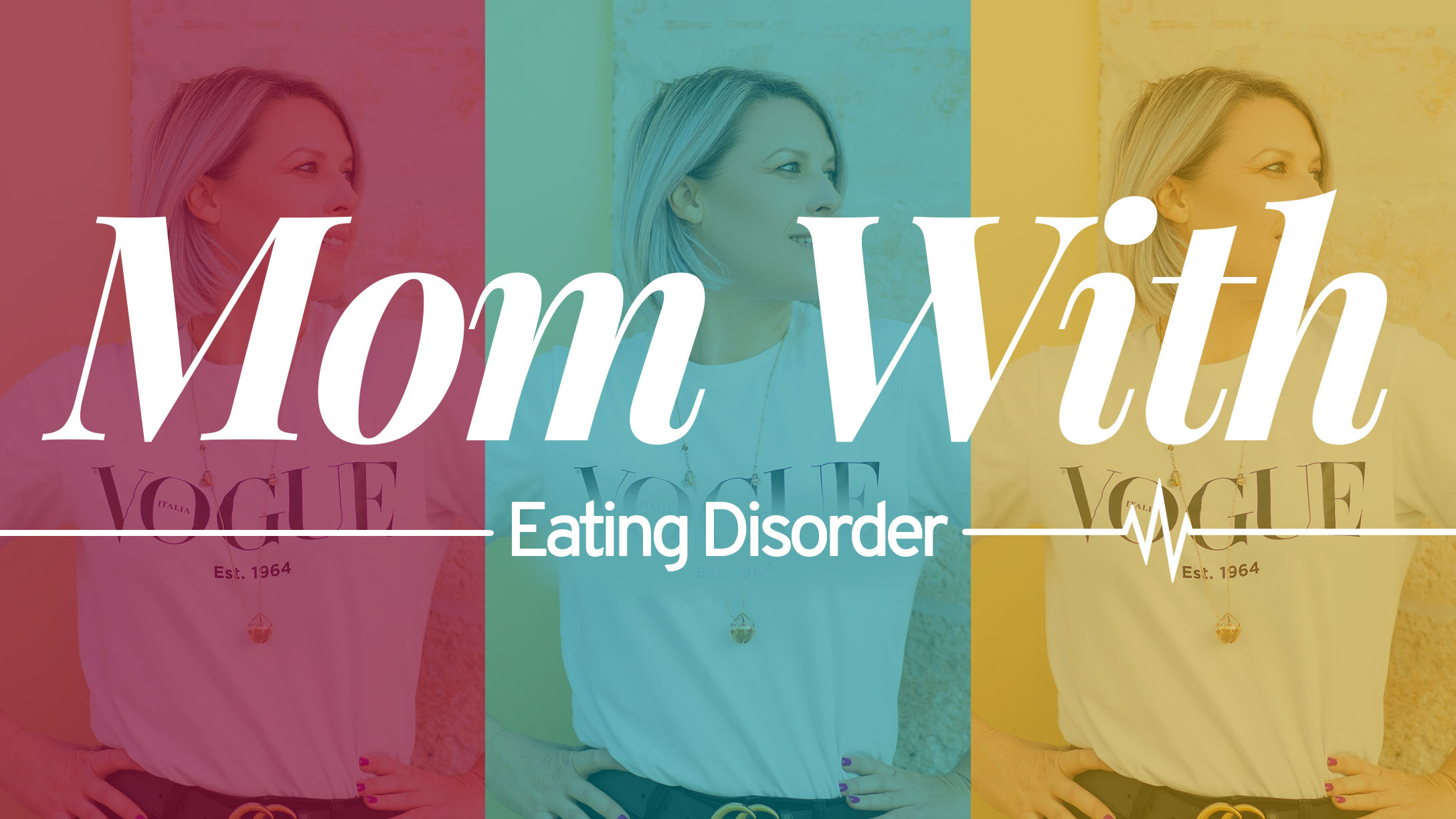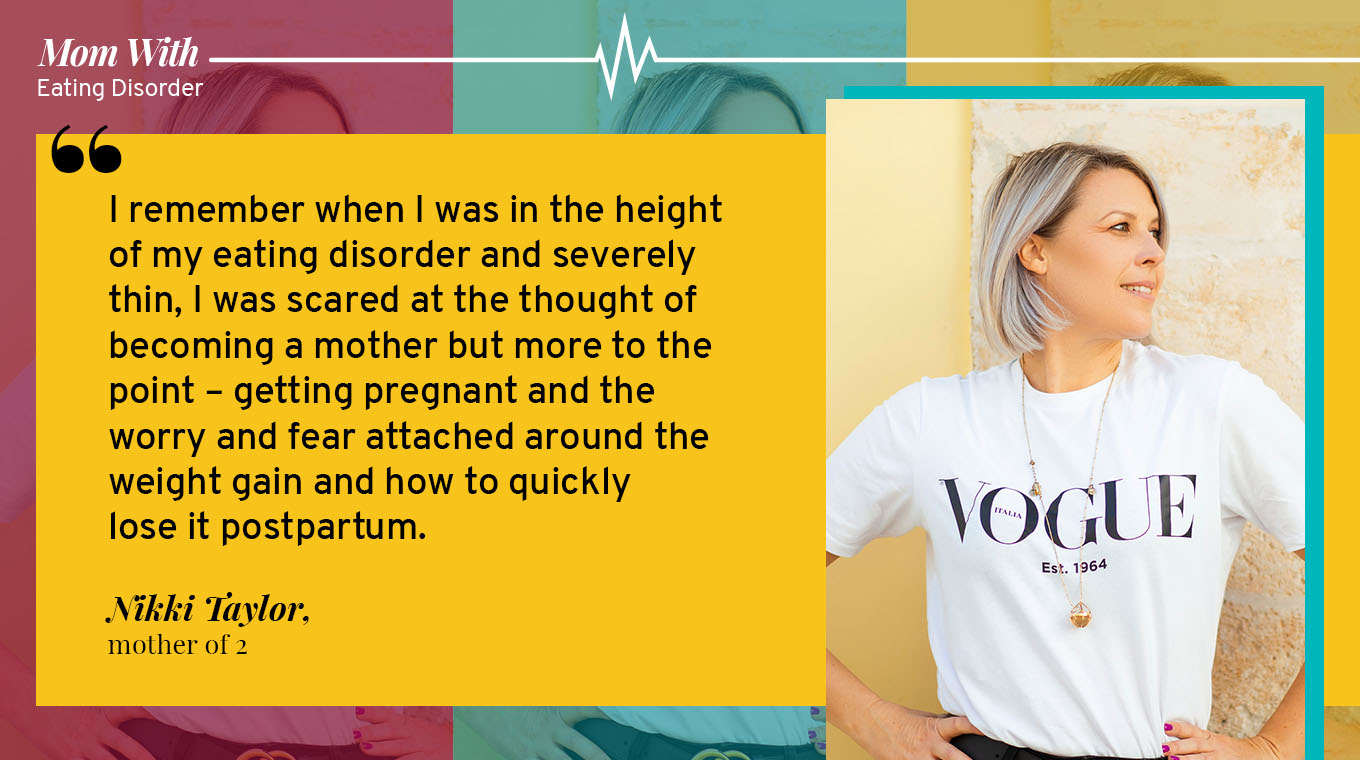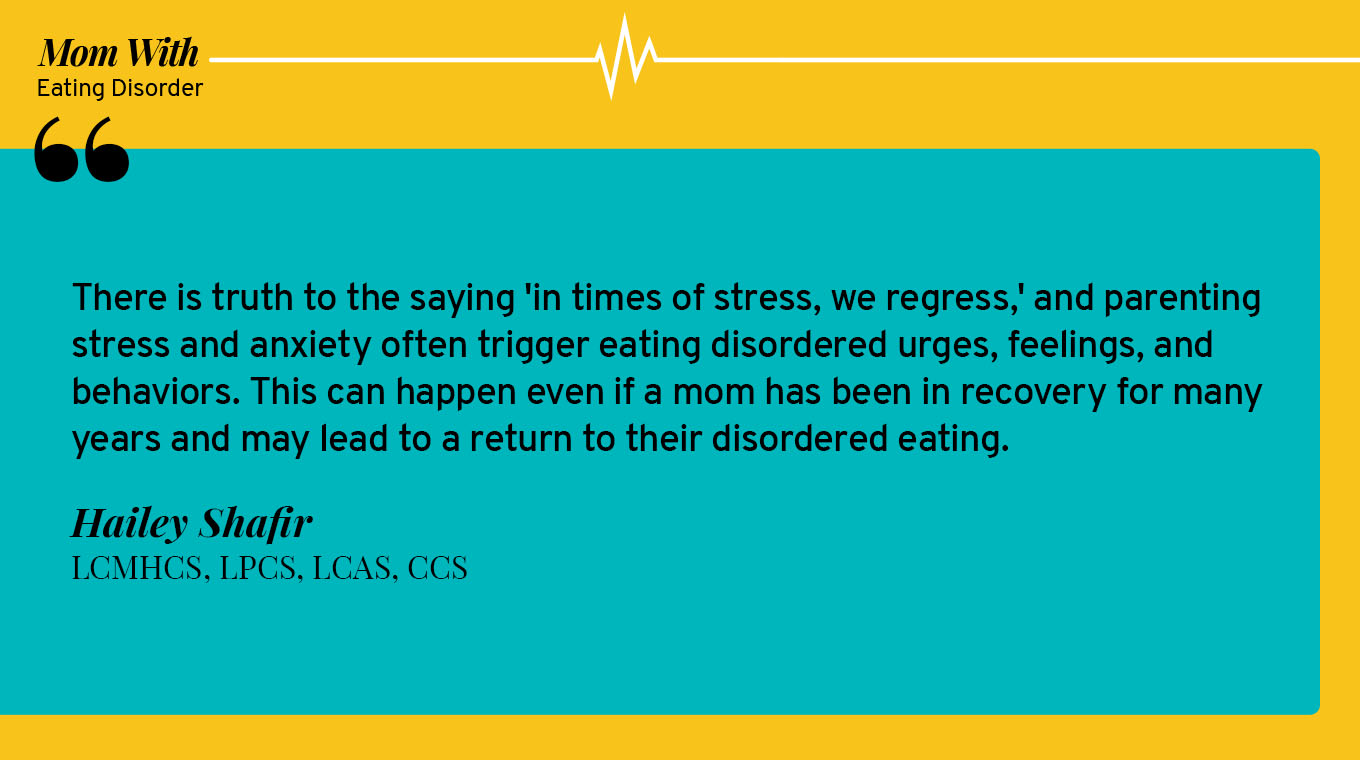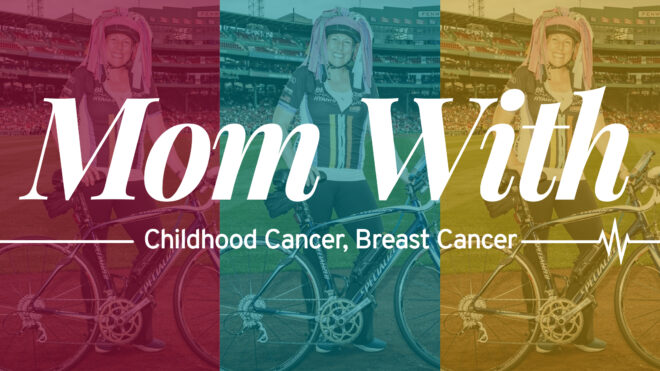
Our monthly column MOM WITH aims to redefine what it means to be a “normal” mother by focusing on how it feels to live with a mental disorder. We see you, we hear you, and we’re in this together.
There isn’t a woman out there who hasn't felt the pressure to fit into society’s standards of beauty and the idealization of the perfect body. Sometimes we manage to fight it, and other times we fall prey. Nikki Taylor, CEO and founder of La Dolce Vita Lifestyle Magazine, suffered from an eating disorder for more than 20 years, which started in her mid-teens and finished in her mid-30s. Eating disorders can have a long-term effect on mental health, of course.
“It totally took over my life and had a major impact on every facet of my life, relationships and generally my mental well-being,” Nikki tells us. “I remember when I was in the height of my eating disorder and severely thin. I was scared at the thought of becoming a mother but more to the point — getting pregnant and the worry and fear attached around the weight gain and how to quickly lose it postpartum. That was something that really had an effect on me for a long time.”
And Nikki isn't alone.
It is very common to experience body image issues when becoming pregnant because our bodies go through major physical and emotional changes.
“Body image issues are really common in pregnant and new moms, who need to adjust to being a different size, buy new clothing that fits, and adapt their eating habits to keep themselves and their babies healthy,” says Hailey Shafir, a licensed clinical mental health counselor and addiction specialist who is an expert in burnout, trauma, anxiety, body image, and self-esteem.
Shafir says that even mothers of toddlers and school-aged children might find it hard to maintain a healthy balance when it comes to diet and nutrition.
“This can go in both directions, with some moms restricting or overdoing it when it comes to exercise, and others overeating, bingeing and giving up completely on efforts to remain active,” Shafir explains.
Those who suffer from eating disorders are unfortunately more likely to suffer from mental health struggles, such as anxiety, stress, and depression.

Nikki says she feels extreme stress from her past struggles with an eating disorder, especially when it comes to dining out at the restaurants.
“Trying to pretend everything was normal, eating my meal with others and then disappearing to the bathroom to be sick, the same issue at work as well,” she says.
“It became almost like a calculated game of when I could time going to the bathroom after eating and not make it look too obvious. I can't even begin to count the hours spent over analyzing what I'd had to eat during the day, and then would begin the spiral of stress and anxiety and how to rectify the calories consumed.”
Getting over an eating disorder can take a lifetime, especially because food is an everyday part of life that cannot be avoided.
But Nikki found the strength to recover from her eating disorder, though it has not always been an easy journey. She tried different types of therapy, but nothing worked. She credits moving to Italy as the milestone when she was finally able to move on toward recovery.
“I clearly was not ready to let it go or had not reached the enough is enough stage,” Nikki shares. “It wasn't until I moved to Italy, a country where the food culture is key, that I started to develop a much healthier relationship with food.
"I feel proud of how far I have come, but when I am under stress in life, work, etc., the tendency to eat late at night whilst working is always there. It is a real case of being disciplined with myself as if I go down the spiral of constantly eating, I know what the outcome could potentially be.”
Luckily for Nikki, she has a job that she loves and her children are too young to understand her past struggles with an eating disorder, and that makes dealing with it much more manageable.
Though she loves her work, it can get quite intense and have an impact on her mental health.
“My work is something that I absolutely love but it is rather intense at times, and this can have an impact on my energy and also patience levels,” Nikki says. “I have two small children; one is super active and needs constant attention and at times I do get overwhelmed!”
For Nikki, a good day would be everything flowing and feeling in alignment. A day with a light workload, space to be mentally open, and the ability to be more present with her boys. A bad day would be jam-packed: one full of meetings, emails, calls, messages via social media, and feeling like she is being pulled from pillar to post.
“It’s when I have those days where the tendency to consume chocolate at night whilst working is quite strong,” she says. “It’s not uncommon for me to polish off an entire block of chocolate in under ten minutes whilst powering away with my work. But then that has a knock-on effect for me the next day with feeling food guilt.”
Being a mom is stressful enough, but having an eating disorder history can further complicate things.

“There is truth to the saying 'in times of stress, we regress,' and parenting stress and anxiety often trigger eating disordered urges, feelings, and behaviors. This can happen even if a mom has been in recovery for many years and may lead to a return to their disordered eating," Shafir says.
"If so, this creates even more stress and anxiety, physical and psychological, as poor eating, restrictive eating, or overeating can all place more stress on moms. This can become a cycle that becomes difficult to break: Moms may cope with stress and anxiety by restricting, bingeing, or purging, but this then creates more stress and more urges to engage in these patterns.”
Nikki has two boys under the age of 4 and runs her own business. So suffice it to say, things can get extremely overwhelming.
“My children are not aware of my eating disorder as they are very small, but I do know that the stress from my work has a massive impact on them," Nikki explains.
Of course, this adds a layer of extra stress to her life, only punching up her disordered eating.
After giving birth to her two boys, Nikki acknowledges that her body is nothing like it used to be, and she is slowly learning to embrace her fabulous curves and the way she looks.
Whereas before clothing shopping used to be a nightmare, Nikki now doesn’t watch the sizes so much but instead chooses clothing that makes her feel good, regardless of the size.
As with physical or mental struggles, mothers are constantly in evolution and trying to erase much of the stigma that comes with these struggles. Nikki herself says that she is far from the perfect “cookie cutter” mother, especially the idea of the perfect Italian housewife and mother.
“I am quite the opposite to most mothers in Italy where I live. Sometimes I wish I was more like a traditional housewife but only for a split second — and then I realized my 'why,' which is my boys,” Nikki tells us.
“I want them to grow up in an environment where they know that anything is possible. I choose to not let my disorder define me anymore as it did for more than two decades, and the daily suffering I experienced is enough to not make me want to go down that rabbit hole again.”
*Disclaimer: The advice on CafeMom.com is not a substitute for consultation with a medical professional or treatment for a specific condition. You should not use this information to diagnose or treat a health problem without consulting a qualified professional. Please contact your health-care provider with questions and concerns.







